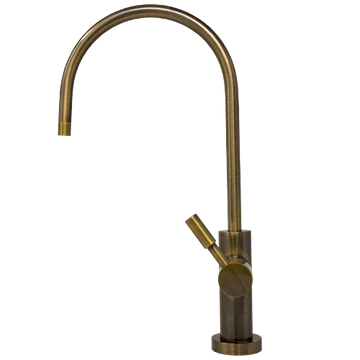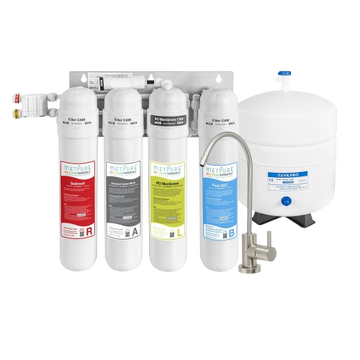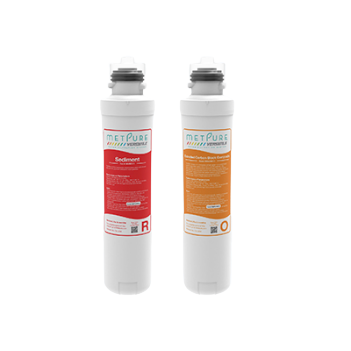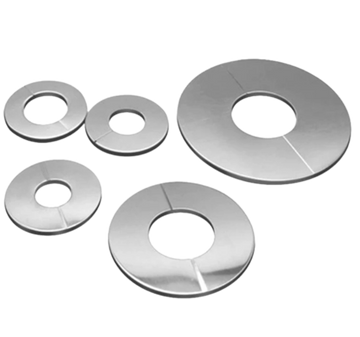Safe and clean drinking water is an increasing priority for many people due to the increased awareness about the industrial impact on water resources, the processes of preparing bottled or packaged water, and the understanding of self-regulating one’s health. The overwhelming land and water pollution has made it pertinent to look after one’s water needs to avoid many waterborne and long-term health issues.
The water reaching us through industrial pipes or packaging has been proven to have more contaminants than is safe for human use. As a result, more individuals and families are seeking effective solutions to guarantee quality and safe drinking water. Among the many traditional and modern methods of purifying water of harmful impurities, water filters for domestic and other uses and chemical drop water filtration are some of the known techniques. With water filters which supply pipe you should use?
These techniques ensure the removal of all impurities to provide better-quality water and peace of mind with safe water. However, with the increased need and demand, the methods or products commercialized in the markets have also increased, creating confusion for consumers about which option to opt for according to their water and purification needs.
What is a Water Filter?
Water filters are tools or products that consist of a filtration mechanism in which water passes through a filtration process. And water filtration is the process of filtering or purifying water, whether through water filters or other techniques. Some of the key aspects of water filters are discussed below:
- Water filters remove impurities from the water, such as viruses, bacteria, hardness, sediment, and even odors or unpleasant tastes, to release purified water for drinking and other uses.
- Some water filters are specifically designed to cleanse water for drinking purposes and provide quality water that improves health and reduces the risk of waterborne diseases.
- Tradition filters like sand and gravel filters, activated carbon filters, or ceramic filters are still used by consumers due to their cost-effectiveness. They require regular and proper maintenance, which can accumulate into a significant cost over time, hence giving way to modern water filters with advanced technologies and user-friendly designs.
-
Modern technologies and tools, including water purification faucet, reverse osmosis water filter, and ultraviolet sterilization techniques, are becoming famous.
Learn more about Is Filtered Water the Same As Distilled Water?
How does Chemical Drops Purify Water?
Purifying water with chemical drops uses chemicals like chlorine, iodine, or chlorine dioxide. These substances are added to the water in a certain ratio required according to the quantity of water and the type or level of contamination in the water. These chemicals kill harmful microorganisms like viruses, bacteria, and protozoa.
When these chemical drops are added to water, they disrupt the structure and function of pathogens’ cell walls by reacting with them and eventually killing them. It significantly reduces the risk of waterborne diseases and makes it safe for drinking. However, the effectiveness of this method depends on several factors and has to be executed carefully. These factors may include:
- The temperature of the water
- The concentration of the chemicals in relation to the quantity of the water
- The type and presence of the organic matter
- The presence of organic matter
The drops are mixed thoroughly in water and are usually allowed to sit for about 30 minutes for complete disinfection. It is widely used in emergency situations, outdoor activities, and when clean drinking water is limited. It provides a portable and simple solution for water safety but requires careful execution because it could also result in chlorine-smelling water with an unpleasant taste.
Is it better to use a filter or chemical drops to purify water?
Whether it is better to use a filter or chemical drops depends on different factors. While filters are highly effective at removing physical particles, debris, and pathogens and providing clean water quickly, they may not effectively kill all viruses and require regular maintenance and replacement.

On the other hand, chemical droplets are lightweight and easy to carry. They are effective against a wide range of microorganisms, killing viruses and bacteria. However, they may leave an odor or aftertaste. They also require waiting time for proper disinfection and need to be used carefully to ensure effective results.
Factors to Consider
Some of the most prominent factors that one should consider when choosing a filtration technique out of the two are discussed below:
- Water Resource:
When choosing a filtration method, considering your water resource is important as it can help you identify its filtration needs and the type of contaminants to select the more suitable technique. For instance, filters are particularly useful in areas with debris-filled or muddy water and less with harmful microorganisms or viruses.
- Contaminants:
Depending on the water body and resource, one can quickly identify the type of impurities filling the water. For instance, debris-filled water from a natural resource or water with more physical or hard contaminants can be effectively cleaned with a filter. However, water prone to viruses and harmful microorganisms can be better purified by chemical substances.
- Water Needs:
The purification technique varies according to one’s water needs. For instance, water from an outdoor pool is more prone to catching bacteria and microorganisms than water stored in containers for domestic use, which might have hardened impurities. Thus, chlorine is a suitable solution for an outdoor pool, and a water filter might be a better option for domestic use. Moreover, filtered ro water is an excellent choice for domestic and drinking water.
- Convenience:
Having a water filter for pool water is also not convenient, considering the size of the pool and the installation of a water filter with it. Hence, it is also important to consider convenience in relation to other factors when choosing a purification technique. For instance, while chemical drops might be convenient for domestic use, they might not provide effective results due to other factors, so making a one-time investment in a water filter will be a more suitable and long-term solution. For instance, sink water filtration can instantly provide clean water, free of odor or aftertaste.
Final Word
Both methods, water filters, and chemical drops, are useful and effective depending on different factors. With the complete analysis provided in this article, consumers can make an informed choice according to their water needs. For an ideal solution, consumers can also combine both methods to get high-quality and clean water while removing physical and microbial impurities from the water. However, it is important to consider one’s water needs, resources, and usage convenience when choosing!














